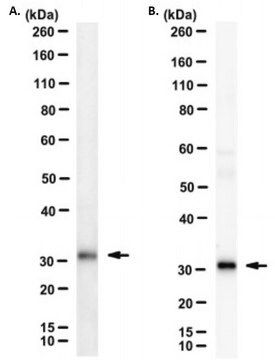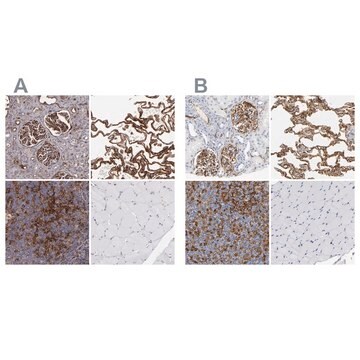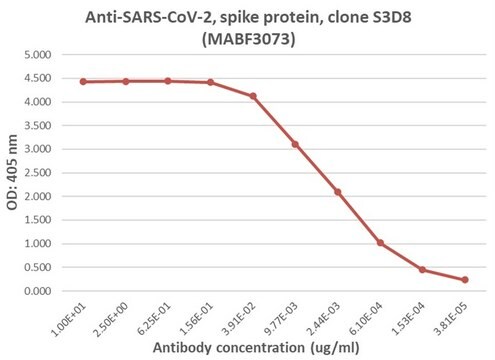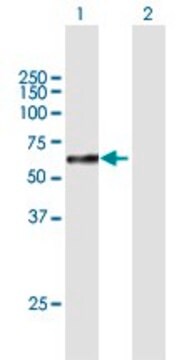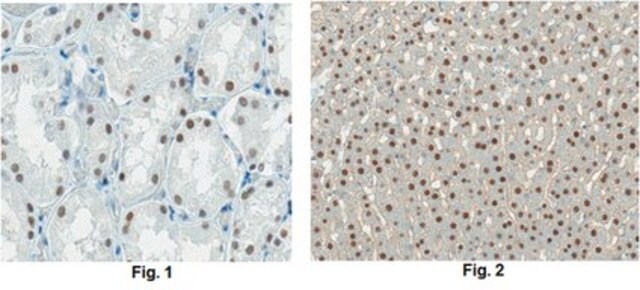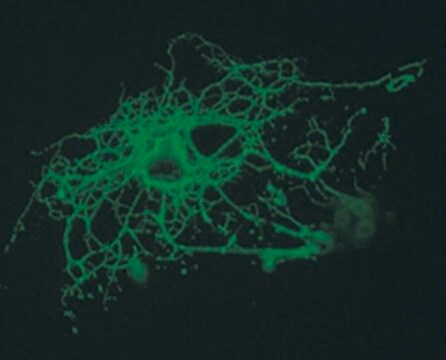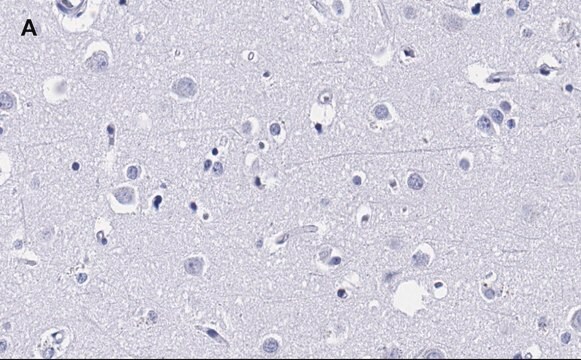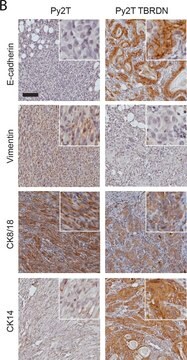MABF2797
Anti-SARS-CoV-2 Spike RBD Antibody, clone 7D1-C12
About This Item
Produits recommandés
Source biologique
mouse
Niveau de qualité
Conjugué
unconjugated
Forme d'anticorps
purified antibody
Type de produit anticorps
primary antibodies, primary antibodies
Clone
7D1-C12, monoclonal
Poids mol.
calculated mol wt 141.18 kDa
observed mol wt ~200 kDa
Produit purifié par
using protein G
Espèces réactives
SARS coronavirus
Conditionnement
antibody small pack of 100 μg
Technique(s)
ELISA: suitable
immunoprecipitation (IP): suitable
neutralization: suitable
western blot: suitable
Isotype
IgG1κ
Séquence de l'épitope
Extracellular domain
Numéro d'accès UniProt
Conditions d'expédition
dry ice
Modification post-traductionnelle de la cible
unmodified
Informations sur le gène
vaccinia virus ... NS1(956533)
Description générale
Spécificité
Immunogène
Application
Evaluated by Western Blotting in lysates from HEK293T cells expressing full-length spike protein of SARS-CoV-2.
Western Blotting Analysis: A 1:1,000 dilution of this antibody detected spike glycoprotein in lysate from HEK293T expressing full-length SARS-CoV-2 spike protein, but not in lysate from wild type HEK393T cells.
Tested Applications
Western Blotting Analysis: A 1:400 dilution from a representative lot detected spike glycoprotein in whole cell lysate of HEK293T cells expressing full-length spike protein of SARS-CoV-2, but not in untransfected cells. (Courtesy of Stefan Schüchner, Ingrid Mudrak, Ingrid Frohner, and E. Ogris (Max Perutz Labs, Medical University of Vienna, Austria).
ELISA Analysis: Various dilutions of a hybridoma culture supernatant of clone 7D1-C12 detected native SARS-CoV-2 spike protein. ( (Courtesy of Stefan Schüchner, Ingrid Mudrak, Ingrid Frohner, and E. Ogris (Max Perutz Labs, Medical University of Vienna, Austria).
Neutralizing: A representative lot of this antibody reduced binding of SARS-CoV-2 RBD to ACE2 receptor in a Binding Interference Assay. ((Data courtesy: Kento Abe and Anne-Claude Gingras, University of Toronto, Canada; Abe, KT., et al. (2020). JCI Insight. 5(19); e142362).
Immunoprecipitation Analysis: A representative lot immunoprecipitated spike glycoprotein of SARS-CoV-2. (Courtesy of Stefan Schüchner, Ingrid Mudrak, Ingrid Frohner, and E. Ogris (Max Perutz Labs, Medical University of Vienna, Austria).
Note: Actual optimal working dilutions must be determined by end user as specimens, and experimental conditions may vary with the end user
Forme physique
Stockage et stabilité
Autres remarques
Clause de non-responsabilité
Code de la classe de stockage
12 - Non Combustible Liquids
Classe de danger pour l'eau (WGK)
WGK 2
Point d'éclair (°F)
Not applicable
Point d'éclair (°C)
Not applicable
Certificats d'analyse (COA)
Recherchez un Certificats d'analyse (COA) en saisissant le numéro de lot du produit. Les numéros de lot figurent sur l'étiquette du produit après les mots "Lot" ou "Batch".
Déjà en possession de ce produit ?
Retrouvez la documentation relative aux produits que vous avez récemment achetés dans la Bibliothèque de documents.
Notre équipe de scientifiques dispose d'une expérience dans tous les secteurs de la recherche, notamment en sciences de la vie, science des matériaux, synthèse chimique, chromatographie, analyse et dans de nombreux autres domaines..
Contacter notre Service technique